Intensifying Pursuits of Peace in a Conflicting Environment
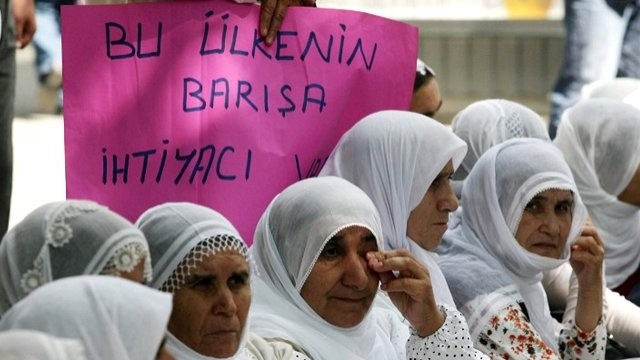
Interview: Reha Ruhavioğlu, 26 January 2018 Worldwide experiences of conflict resolution were generally unpopular in Turkey during the “Solution Process.” Now that the conflicts have restarted and no solution is foreseeable, CSOs and academicians seem to re-investigate all those experiences closely. We asked what it means to talk about peace during a conflicting state to […]
Interview: Reha Ruhavioğlu, 26 January 2018
Worldwide experiences of conflict resolution were generally unpopular in Turkey during the “Solution Process.” Now that the conflicts have restarted and no solution is foreseeable, CSOs and academicians seem to re-investigate all those experiences closely. We asked what it means to talk about peace during a conflicting state to CSO representatives.
Solution process started in 2013 and the society observed it with great attention. However, people were generally passive, focused more on the actors. Because the process was mostly focused on actors, other countries’ experiences were not popular among the public. There were scarcely any similar studies except from Political and Social Research Institute’s (DISA) “experience meetings”. After the failure of the solution process, conflict resolution and experience meetings started to be at our agenda more often. In 2015, when the process started to deteriorate, we had the chance to listen to the experiences in Philippines and Colombia from the very actors of the resolution movements. There had been many similar studies from that time on. For example, in 2016 Research Center for Peace, Democracy and Alternative Politics (DEMOS) published a book titled “Worldwide Experiences of Women’s Struggles for Peace: Serbia, Kosovo, Sri Lanka, Syria.” The book aims to contribute to the struggle in Turkey by focusing on women’s experiences in peace movements. Sessions of “Rejuvenating Peace Processes: Colombia, Philippines, Indonesia” were turned into a book by Professor Ayşe Betül Çelik and published recently. Cuma Çiçek wrote a similar book for DİSA and it was launched in Diyarbakır few weeks ago.
There had been many meetings and workshops focusing on peace seeking and country experiences for the last two years. Recently, Tigris Social Research Center (DİTAM) held the 10th meeting of Social Peace Network and Istanbul Policy Center within Sabancı University held a conference called “The Role of Women in Societal Consensus.”
We interviewed Diyarbakır’s CSO representatives about the growing interest in conflict resolution experiences during the states of conflict, contrary to the times of peace.
What are your comments aboutthe growing interest in conflict resolution experiences during the states of conflict, contrary to the times of peace?
Necdet İpekyüz (Chairman of the Board, DİSA): Some institutions were studying on the worldwide experiences, but all those studies or outcomes were usually overlooked. In DİSA, we wanted to draw the attention to the subject and organized events accordingly. For example, we invited Jonathan Powell, who was the chief negotiator between British government and IRA, to Turkey. We held meetings both in Diyarbakır and Istanbul and invited relevant institutions. It is true that all those experiences were not kept enough on the agenda or overlooked because the actors of the process were not insistent. During the solution process, not many opportunities were offered to CSOs, their active participation was not so encouraged. After all, solution process showed the public that it was possible to solve problems which caused so many pain and difficulty. Despite of its deficiency and not being open to CSOs’ participation in real terms, we wanted to believe in it. A handwringing period stroke back after the process ended. We faced death, pain and despair. We know from our previous experiences that security policies stress the society and cause polarization. It is positive to talk about peace seeking, but it is impossible to say what we are going through is positive. On the contrary, things we experience nowadays will come up as an obstacle for a future solution. However, we have to talk again and plan the future in a healthy, peaceful state. That is why, we need to hear about many more experiences, we have to learn not only the right actions but also the wrong ones. Experiences should not belong only to one or two countries. Wherever there is a conflict resolution experience or attempt, we should benefit from it. We immediately should find solutions to end this conflicting atmosphere. DISA works in order to achieve this aim. Even if there are a few organizations working on the issue, they should be supported, particularly in these days. Giving information to the public about these experiences would make us all breathe again.
Abdurrahim AY (Former VP of the Association for Human Rights and Solidarity for the Oppressed, MAZLUMDER and a member of Initiative for Haq):
When the talks (aka the “Solution Process”) between the state and the PKK (Kurdish Workers’ Party) started, as well as many CSOs and human rights organizations, MAZLUMDER declared that the most important issue in Turkey was the Kurdish Question and the will put forward to solve it was very valuable. We also said that it was very important to realise the psychological traces caused by 30 year old problem among the society. Lastly, we shared our opinions on how to improve the process. However, the government preferred to go its own way and overlooked the CSOs’ opinions about the process. After some more incidents, the process was put aside.
Actually, meetings on different countries’ experiences were being held by CSOs when the process had just started. But not as often as today. Turkey’s solution process proceeded somehow, even to the point of withdrawal of PKK’s armed forces outside the country. Because the process seemed to work fine, benefitting from other countries’ experiences was not popular enough. However, one of the most important issues was meditating and researching on how to overcome any possible obstacle.
Going back to the state of conflict directed people to re-evaluate yesterday’s mistakes and how not to make any more of them. The state we are in now shows how necessary the state of peace is. That is why; CSOs seem to make more efforts to inform related people about different countries’ experiences and raise awareness on the issue.
Turkey’s and region’s CSOs were mostly unfamiliar with worldwide experiences while the process was continuing between the years 2013-2015. What are negative effects of that? What would have been different if they had known about those experiences?
Necdet İpekyüz: Each experience warns and directs us to the right way and prevents us from making mistakes. Would it have been possible to prevent the solution process from going off the rails by being proactive? Those studies were not enough. If we had been more prepared and informed, the process would have been more successful. Of course, leading actors should have been more inclusive and open to suggestions, too.
Abdurrahim AY: Although CSOs do not have power over the parties, they are very important means of understanding public opinion and stimulating the society about problematic issues. Many CSOs followed the solution process very closely and declared their will on almost every issue. However, all those declarations and democratic reactions were not guiding enough because they were rooted totally in Turkey’s conditions. That’s why; not being familiar with worldwide experiences caused the process to stumble and when it was already on the breaking point, there was not enough public awareness and pressure on how to come back to the table.
Throughout the solution process, the parties made statements ignoring the fragility of it. Additionally, we faced some incidents causing the process to fail. The most important lesson learned from the worldwide experiences is that the processes are fragile and when conflicting atmosphere starts to dominate again, it is even more violent and harder to re-communicate. If the parties had studied more on the worldwide experiences, as much as CSOs, the solution process might have proceeded better.
When the parties were locked in talks or came towards a breaking point, CSOs might have played a leading role to inform about the worldwide experiences and stimulate the society. For example, during the period of hunger strikes in prisons, some CSOs from the region made important interviews with delegations in the Ministry of Justice, Speaker’s Office and People’s Democratic Party. Similar steps could have been taken for the process, over worldwide experiences.
It is obvious that the conflicting parties did not lead the solution process in accordance with the worldwide experiences. How would it be possible to benefit from those experiences?
Necdet İpekyüz: We wouldn’t have faced what we are going through today. It all seems like a dream now as we look back. Can you imagine hundreds of thousands people getting together for Newroz celebrations in Diyarbakır without any obstacle or any incident and listening live and with great attention to the statement from Imrali?
The parties should have managed the process by sticking to a particular program and a calendar, by encouraging CSOs’ participations, even supervisions. Instead, not a single suggestion was taken into account, everything happened behind closed doors. Instead of developing trust mutually, suspicions and insecurity grew between the parties. We would have been in a better state now, if only the other experiences had been taken into account. Each experience is both unique and has mutual norms. It is necessary to determine the similarities and differences, work harder on the subject.
Abdurrahim Ay: It would have been very helpful to carry out a mutual study with the government. It is without a doubt. A thorough study on different experiences would have helped to develop some certain manners for possible scenarios in Turkey.
For example, in Colombia-FARC peace process, the parties stayed loyal to the peace talks no matter what the conditions were. Both the British government and IRA kept their promises. In South Africa, ANC and the government were also consistent. In the Philippines-MNLF and IRA-British government examples, the negotiators played very important parts. In all of those examples, the necessary democratic steps were taken to help the process proceed. Whereas in Turkey, democratic steps were not taken carefully, there was not any third eye to observe the situation, PKK gave the impression of going back to conflicts, and the parties did not keep their promises. That is why we are in this today’s situation.
When we look closely to the phase we are going through, it is not easy to be optimistic about the conflict resolution. What should CSOs do in times like these?
Necdet İpekyüz: We have to work harder, learn more and give hope to the society. Because we know that the best way to find solutions is to communicate without being violent. Worldwide experiences show us that the important thing is to win altogether. CSOs should research, learn and pay regard to any experience on conflict resolution. Overall, we should be insistent. We should generate demand on ending the conflicts. It is difficult to ask for peace, but the important thing is to achieve what is hard. We shouldn’t repeat yesterday’s mistakes.
Abdurrahim Ay: After the 15th July coup attempt, state of emergency has been declared and many of rights and freedoms have been restricted. Additionally, any criticism (within the frame of freedom of expression) directed to the government’s policies faces unjust legal procedure. All of these make things difficult for CSOs. Nevertheless, CSOs’ fundamental function is to create awareness and stimulate the public. That’s why, it is important for them to continue saying out loud that a country which failed to provide inner peace wouldn’t contribute to the world peace; that a state which did not face its past wouldn’t determine its future. Along with these, they have to continue reminding that ignoring the problem and delaying any possible solution would come up stronger in the future and cause more conflicts.
I believe that even a small step to turn back to the solution process would have many supporters, especially in Kurdish society. While PKK’s actions have stopped significantly, state of emergency should be repealed in the first place and peaceful steps should be taken for democratization. After that, CSOs should start interviewing with the parties and make the grounds for going back to the solution process. Achieving a state of peace without going back to the conflicting environment has a vital importance for Kurdish people’s psychological bonds with the state-country. Anyone with a sense of responsibility has something to do about that. The studies on worldwide experiences are a part of what can be done. Another part is to transmit the need for solution to the capillaries of politics and bureaucracy.

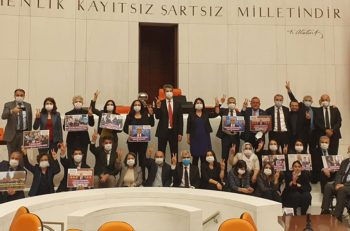
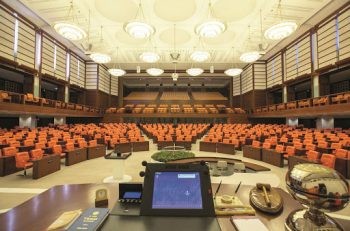
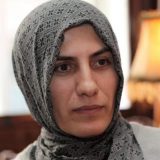
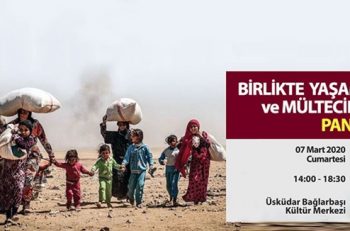
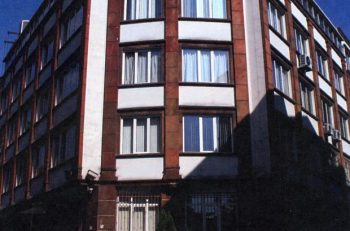
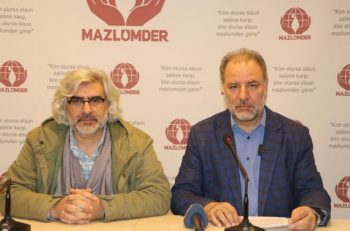
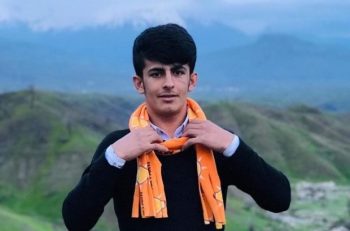
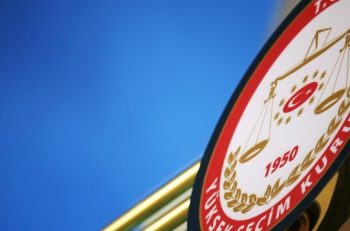
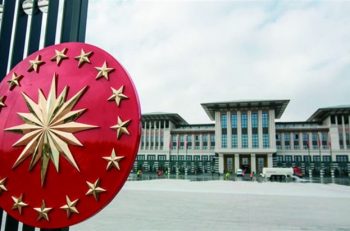
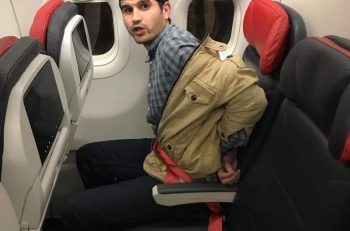
Bizi Takip Edin